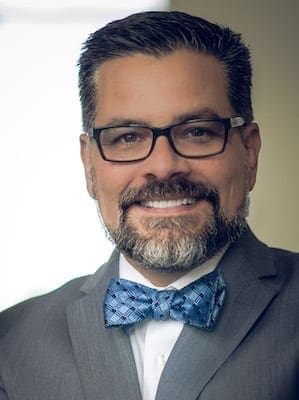
The “Faith and Democracy Tour,” launched by Robert P. Jones, Diana Butler Bass, Jemar Tisby and Kristin Kobes Du Mez, recently made their first two stops in Greensboro, North Carolina, and Tempe, Arizona.
Jones, president and founder of Public Religion Research Institute, told Good Faith Media those states were chosen to kick off the tour because they are important ones in this year’s presidential election.
Jones, a theologically trained researcher, joined church historian Butler Bass, theologian Tisby and historian Kobes Du Mez on the stage at Dayspring United Methodist Church before approximately 250 attendees.
Du Mez offered a vulnerable and honest personal assessment of her feelings at this point in the election cycle. She admitted to being tired of the constant barrage of political conversations and partisan vitriol.
However, even after confessing her weariness, she commented, “For those of us who see what’s happening … it’s a long haul. And there is no promised victory at the end. There is no end. There’s no end.”
“And it’s so tempting to check out,” she continued. “It’s so tempting to pass the baton or just put your head down … And in a democracy, we all have to step up. And those of us who see what’s happening, it’s up to us to open other people’s eyes.”
Butler Bass echoed those remarks, recalling a personal story. As many families do, her family has an ongoing text thread. When her adult daughter asks her mom a question in the thread and does not receive an answer in an appropriate time frame, the daughter responds, “Oh, that’s Mom. She’s fighting fascism.”
After the crowd settled after a hearty laugh, Butler Bass revealed how proud she was of her daughter’s comment. She told the audience she had achieved a lot during her career as a church historian, but if her daughter and grandkids remember one thing about her life, it will be that she stepped up to fight fascism.”
Tisby ignited the crowd with his inspiring words of encouragement and hope. After talking about how the Black Church narrative is often forgotten but desperately needed in this moment, Tisby reminded the crowd to remember the saints who walked this journey before.
Wearing a shirt that read “Justice Takes Sides,” Tisby spoke with GFM after the panel and offered this remark: “A word of hope and encouragement for these last two weeks as we enter into this very consequential presidential election is: Nothing can stop a people who won’t quit.”
He went on to state: “We have to resolve right now that we are going to keep fighting for progress, for justice, for equality, and no matter if it [the election] goes the way we hope or not, we have to resolve that we’re not going to quit.”
He concluded, “So let’s keep hope alive!”
While everyone shared in Tisby’s enthusiasm and hopefulness, Jones pointed to the recent disturbing trend of some citizens seeing violence as a legitimate political tool.
Jones told GFM that a just-released survey by PRRI found that “a vast majority of Americans” reject political violence. However, about one-quarter of white Evangelical Protestants and nearly three in ten Republicans said that violence is an acceptable political tool.
In this Friday’s episode of “Good Faith Weekly,” Brad Onishi echoes Jones’ concern. Onishi believes there is a real possibility of political violence on election day, days after the election during vote counting, or – again – on January 6 when Congress certifies the election.
However, Jones does have hope, recalling a Jewish proverb from the Midrash: “You are not responsible to finish the work, but neither can you desist from it.”
Jones said: “The election is not really the beginning or end of anything. It is an event. There will be life beyond it. And we will all have responsibilities to pick up and make our country the best thing it can be.”
With so much on the line in less than two weeks, people of good faith need to rise up, advocate, and use their voices and votes to declare faith and democracy as essential tools for a prosperous American future.
Tisby was right: We must “keep hope alive,” for the alternative is too grave an outcome to consider.
CEO of Good Faith Media.

